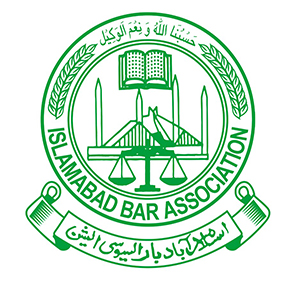- Health and Care Worker visa
- Skilled Worker visa
- Creative Worker Visa
i-Health and Care Worker visa:
A Health and Care Worker visa allows medical professionals to come to or stay in the UK to do an eligible job with the NHS, an NHS supplier or in adult social care.
To qualify for a Health and Care Worker visa, you must:
- be a qualified doctor, nurse, health professional or adult social care professional
- work in an eligible health or social care job
- work for a UK employer that’s been approved by the Home Office
- have a ‘certificate of sponsorship’ from your employer with information about the role you’ve been offered in the UK
- be paid a minimum salary – how much depends on the type of work you do
If you’re a care worker or senior care worker working in England, your employer must also be registered with the Care Quality Commission.
Eligibility criteria:
-You must have a confirmed job offer before you apply for your visa.
-Knowledge of English
-You must be able to speak, read, write and understand English. You’ll usually need to prove your knowledge of English when you apply.
If you’re not eligible for a Health and Care Worker visa
You may be eligible for another type of visa to work in the UK.
Documents you’ll need to apply
When you apply, you’ll need to provide:
- your certificate of sponsorship reference number – your employer will give you this
- proof of your knowledge of English (Minimum 4 Band IELTS/Skills for Life)
- a valid passport or other document that shows your identity and nationality
- your job title and annual salary
- your job’s occupation code
- the name of your employer and their sponsor licence number – this will be on your certificate of sponsorship
Ask your employer for a copy of your certificate of sponsorship if you do not have one.
Other documents you might need:
Depending on your circumstances, you might be asked to provide:
- evidence that you have enough personal savings to support yourself in the UK, for example bank statements (unless your certificate of sponsorship shows your employer can support you)
- proof of your relationship with your partner or children if they’re applying with you
- your tuberculosis test results if you’re from a listed country
- a criminal record certificate – if you’re working in certain jobs
- your UK PhD certificate, or your unique Ecctis reference number (formerly unique UK NARIC reference number) if your qualification is from outside the UK – you’ll need to apply through Ecctis
How long you can stay:
Your visa can last for up to 5 years before you need to extend it. You’ll need to apply to extend or update your visa when it expires or if you change jobs or employer.
If you want to stay longer in the UK:
You can apply to extend your visa as many times as you like as long as you still meet the eligibility requirements.
After 5 years, you may be able to apply to settle permanently in the UK (also known as ‘indefinite leave to remain’). This gives you the right to live, work and study here for as long as you like, and apply for benefits if you’re eligible.
How to apply
You must apply online.
How you apply depends on whether you’re:
- outside the UK and are coming to the UK
- inside the UK and extending your current visa
- inside the UK and switching from a different visa
If you want to change your job or employer, you must apply to update your visa.
Your partner and children can apply to join you or stay in the UK as your ‘Dependents’ if they’re eligible.
How long it takes:
You can apply for a visa up to 3 months before the day you are due to start work in the UK. This date is listed on your certificate of sponsorship.
As part of your application, you’ll need to prove your identity and provide your documents.
You may need to allow extra time if you need an appointment to do this. You’ll find out if you need one when you start your application.
How much it costs:
You, your partner or children will each need to:
- pay the application fee
- prove you have enough personal savings @ £ 1270 for consecutive 28 days before application in you’re A/C
You – and your partner or children – will not have to pay the healthcare surcharge.
If you’ll need to meet different salary requirements:
You’ll need to meet different salary requirements for this visa if your job is in one of the following occupation codes:
- 1171: health services and public health managers and directors
- 1231: health care practice managers
- 1232: residential, day and domiciliary care managers and proprietors
- 2113: biochemists and biomedical scientists
- 2114: physical scientists
- 3111: laboratory technicians
- 3211: dispensing opticians
- 3212: pharmaceutical technicians
- 6135: care workers and home carers
- 6136: senior care workers
If your job is in any other occupation code that is eligible for this visa, you must meet the salary requirements
Salary requirements:
You’ll usually need to be paid at least £29,000 per year, or the lower ‘going rate’ for your job, whichever is higher.
Example
Your salary is £30,000 per year, but the annual lower going rate for the job you’ll be doing is £33,000. You do not meet the usual salary requirements for this visa.
Each occupation code has its own annual lower going rate. Check the lower going rate for your job in the going rates table.
When you can be paid less:
You might still be able to apply for a Health and Care Worker visa if your job is eligible but your salary is less than £29,000 or your job’s lower ‘going rate’.
You can be paid between 70% and 90% of the lower going rate for your job if your salary is at least £23,200 per year and you meet one of the following criteria:
- you’re under 26, studying or a recent graduate, or in professional training
- you have a science, technology, engineering or maths (STEM) PhD level qualification that’s relevant to your job (if you have a relevant PhD level qualification in any other subject your salary must be at least £26,100)
- you have a postdoctoral position in a scientific role
You cannot get a discounted salary rate if your job is on the immigration salary list.
Your job is on the immigration salary list:
The immigration salary list is a list of skilled jobs which have lower salary
requirements.
If your job is on the immigration salary list, you need to be paid at least £23,200 or your job’s full going rate, whichever is higher.
You’re under 26, studying or a recent graduate, or in professional training:
You can be paid 70% of your job’s lower going rate if your salary will be at least £23,200 per year and one of the following applies:
- you’re under 26 on the date you apply
- you’re currently in the UK on a Student visa studying at bachelor’s degree level or above – or you have been in the last 2 years, and a Student or visit visa was your most recent visa
- you’ll be working towards a recognised qualification in a UK regulated profession
- you’ll be working towards full registration or chartered status in the job you’re being sponsored for
You have a PhD level qualification that’s relevant to your job:
You can be paid 80% or 90% of the job’s lower going rate, depending on which subject you are qualified in.
If you have a science, technology, engineering or maths (STEM) qualification, you can be paid 80% of your job’s lower going rate, as long as you will still be paid at least £23,200 per year.
If you have a non-STEM qualification, you can be paid 90% of your job’s lower going rate, as long as you will still be paid at least £26,100 a year.
In both situations, you must:
- have a UK PhD or an equivalent doctorate-level overseas qualification – you’ll need to apply through Ecctis (formerly UK NARIC) to check if an overseas qualification is equivalent to a UK PhD
- be able to prove your qualification is relevant to the job you’ll be doing in the UK – your employer can confirm this
If you’re a research or academic leader, you may also be eligible to apply for the Global Talent visa. This visa has no language or minimum salary requirements.
You have a postdoctoral position in a scientific role:
You can be paid 70% of your job’s lower going rate if your salary will be at least £23,200 per year and you’ll be working in a postdoctoral position in either of the following occupation codes:
- 2113: biochemists and biomedical scientists
- 2114: physical scientists
Your total stay in the UK cannot be more than 4 years if you apply to work in a postdoctoral position at 70% of the lower going rate. This includes any time you’ve already spent in the UK on a Tier 2 (General) work visa.
Taking on additional work:
You can do additional paid work on a Health and Care Worker visa as long as you’re still doing the job you’re being sponsored for. You can also do unpaid voluntary work.
If you complete your GP training, you can do 4 months of additional paid work.
You may need to apply to update your visa to do additional paid work. This will depend on the type of work you’re doing and the hours you’re going to work.
Your additional work must be in an eligible Skilled Worker occupation code.
When you need to update your visa
You must update your visa if your additional job is more than 20 hours a week.
You don’t need to update it if you’re:
- working overtime in the job you’re being sponsored for
- working ‘bank shifts’ for your NHS sponsor
Apply to update your visa:
To apply, you’ll need to:
- get a new certificate of sponsorship from your second employer
- include a letter with your application explaining that you want to change your current permission to stay
You can:
- work in an eligible job
- take on additional work in certain circumstances
- do voluntary work
- study
- bring your partner and children with you as your ‘dependents’, if they’re eligible
- travel abroad and return to the UK
- apply to settle permanently in the UK (also known as ‘indefinite leave to remain’) if you’ve lived in the UK for 5 years and meet the other eligibility requirements
You cannot:
- apply for most benefits (public funds), or the State Pension
- change jobs or employer unless you update your visa
If your application is successful, you’ll get a full list of what you can and cannot do with a Health and Care Worker visa.








